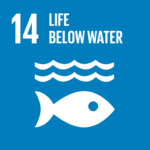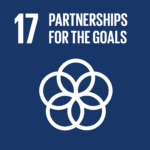The StAR Project Thailand marks ReShark’s second major initiative after its 2022 debut in Raja Ampat. Through its “Spot the Leopard Shark” citizen science effort, the project has gathered 1,300+ images and identified 278 individual sharks since 2004.
PHUKET, THAILAND — In a historic step toward marine biodiversity restoration, Thailand has launched its first-ever shark rewilding initiative aimed at reviving populations of the endangered Indo-Pacific leopard shark.
The Stegostoma tigrinum Augmentation and Recovery (StAR) Project was officially unveiled on May 16, 2025, in Phuket Province. This pioneering conservation effort brings together a powerful alliance of government agencies, NGOs, scientists, aquariums, and the private sector to restore populations of the endangered species known for its distinctive spotted pattern and crucial role in marine ecosystems.
RELEVANT SUSTAINABLE GOALS


From Decline to Hope: Thailand’s Shark CrisiS
Once a common sight in Thai waters, Indo-Pacific leopard sharks have seen steep population declines due to coral reef degradation and bycatch. Despite their ecological importance and tourism appeal, sightings of these gentle bottom dwellers have become increasingly rare.
Thailand’s Department of Marine and Coastal Resources (DMCR), Department of National Parks, Wildlife and Plant Conservation (DNP), and Department of Fisheries (DoF) have all committed to reversing this decline. With support from partners including WildAid, Ocean Blue Tree, Aquaria Phuket, and ReShark—a global conservation coalition—Thailand is placing leopard shark conservation at the heart of its marine recovery strategy.
Scientific Innovation Meets Local Action
The StAR Project Thailand is only the second initiative under ReShark, following its 2022 launch in Raja Ampat, Indonesia. The Thai project incorporates citizen science via the “Spot the Leopard Shark” initiative, which has collected over 1,300 images and identified 278 individual sharks since 2004. This data has proven vital in mapping habitats and population dynamics.
This year, nine juvenile sharks bred at Aquaria Phuket were transferred to a sea pen at Maiton Resort, where they will undergo rewilding preparations before being released into the wild. Techniques include simulating natural foraging and acclimating sharks to ocean currents and environmental variables.
Rewilding as a Path Forward
“Rewilding offers a vital lifeline,” said WildAid’s Metavee Chuangcharoendee. “With sharks and rays in crisis, urgent action is needed to reduce our impacts and rebuild populations.”
A population viability analysis (PVA) is underway to guide future reintroductions, including identifying suitable release sites and ensuring genetic alignment with wild populations. Genetic testing confirmed that the juveniles belong to the same strain native to Thai waters.
Government leaders praised the unprecedented collaboration. DMCR Director-General Pinsak Suraswadi emphasized Thailand’s designation of leopard sharks as a protected species and ongoing commitment to habitat conservation.
“This initiative showcases the strength of multi-sector partnerships in achieving long-term marine conservation,” said Chalermpong Pathumchotisuwan, COO of Maiton Resort, which is hosting the juvenile sharks.
Meanwhile, the DNP and DoF are enhancing monitoring capabilities, identifying future release zones, and supporting egg shipments to expand the program. “Thailand has the potential to lead in shark conservation,” said DNP Director-General Athapol Charoenshunsa.
Implications for Southeast Asia
The StAR Project is not just a milestone for Thailand—it signals a broader opportunity for Southeast Asia. With its rich marine biodiversity and growing eco-tourism sector, the region can become a global leader in shark recovery and marine resilience.
“If done right, this project can create a ripple effect,” said Dr. Mark Erdmann of ReShark Council. “Thailand’s leadership could inspire similar actions across the region.”
In the coming months, juvenile sharks will be tagged and tracked after their release. Continuous data collection will inform adaptive strategies for conservation, while community engagement ensures lasting stewardship.
As Thailand turns the tide on its shark crisis, the StAR Project offers a hopeful blueprint—uniting science, policy, and grassroots passion to revive one of the ocean’s most enigmatic species.
“We must act now,” said Daryl Foong of Aquaria Phuket. “Because every shark saved is a step closer to healthier oceans and a more sustainable future for us all.”
Lead image courtesy of Lorimage : Star Project Thailand (Copyright : Surachai Arunrugstichai / WildAid/ Ocean Blue Tree / Vital Impacts)





